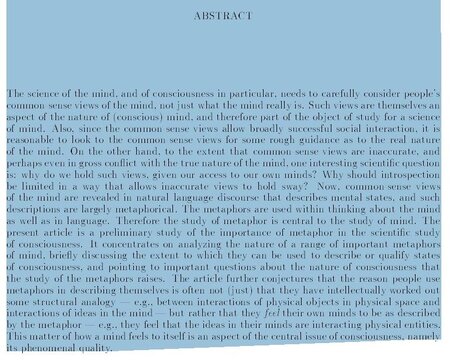S
smcder
Guest
Constance I share your appreciation for this hypothesis. From what Pharoah has said in the past, i think he agrees with the notion that phenomenal consciousness (in this case, affective consciousness) preceeded "conceptual" consciousness.
What do you think the above implies? Do you think it is a notion that hasnt been recognized by those participating in this discussion? As noted, i think at least pharoah and i have recognized it.
As ive outlined at length in the past, i feel that both panksepp's and barretts approaches to affectivity are needed to explain human emotion.
However, constance, im still not sure that panksepp is implying such affectivity preceeded the evolution and action of neurons. (If that is what youre thinking.)
What do you think the above implies? Do you think it is a notion that hasnt been recognized by those participating in this discussion? As noted, i think at least pharoah and i have recognized it.
lol

 is assumptions, maybe that's what the universe is made of ...
is assumptions, maybe that's what the universe is made of ...